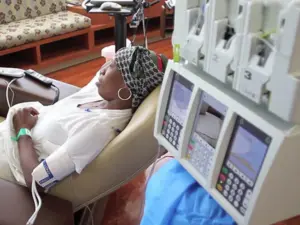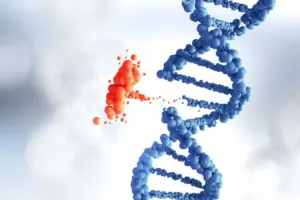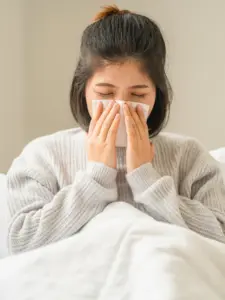Leukemia treatment at VS Hospitals in Chennai offering advanced diagnostics, expert hemato oncologists, targeted therapies, and compassionate, comprehensive cancer care.
Leukemia treatment at VS Hospitals in Chennai offering advanced diagnostics, expert hemato oncologists, targeted therapies, and compassionate, comprehensive cancer care.

Leukemia is a type of cancer that affects the blood and bone marrow, leading to the production of abnormal white blood cells. These abnormal cells can interfere with the body’s ability to fight infections, control bleeding, and carry oxygen throughout the body. While leukemia can affect people of all ages, it is more common in older adults and children. Advances in medical science have made it possible to treat and manage leukemia effectively, especially when diagnosed early. This article explores the signs, symptoms, risk factors, diagnosis, and treatment options for leukemia, as well as the specialized services offered at VS Hospitals.

Early detection and treatment are crucial for improving the chances of survival. If you notice any concerning symptoms, consult a healthcare provider immediately.
Feeling unusually tired or weak, even after getting enough rest, is a common symptom of leukemia.
Since leukemia affects the immune system, people with this condition may experience frequent or severe infections.
Losing weight without trying can be a sign of leukemia, especially when combined with other symptoms.
Persistent fever or chills, especially without a clear cause, can indicate leukemia.
People with leukemia may bruise easily or experience prolonged bleeding from minor cuts or injuries.
Enlargement of the spleen or liver can cause pain or a feeling of fullness in the abdomen.
Swollen lymph nodes in the neck, underarms, or groin may indicate leukemia, particularly in certain types.
Anemia caused by leukemia may lead to pale or sallow skin, indicating a lack of red blood cells.
Hematuria - pink, red, or dark urine, the most common symptom
Feeling the need to urinate frequently, even when bladder is not full
Experiencing pain or burning sensation while urinating
Pain that occurs as the cancer grows and spreads
Significant weight loss not related to diet or exercise
Feeling unusually tired or weak without a clear cause
Smoking is one of the leading causes of bladder cancer. Chemicals in tobacco smoke can damage the lining of the bladder, increasing the risk.

Men are at a higher risk of developing bladder cancer than women.

Conditions such as bladder infections and long-term bladder inflammation can increase the risk.

Prolonged exposure to certain chemicals, especially those used in the dye industry, rubber production, and chemical manufacturing, increases the risk.

Leukemia is more common in older adults, although certain types of leukemia, such as acute lymphocytic leukemia (ALL), are more common in children.

A family history of leukemia or other blood cancers can increase the risk of developing leukemia.

People who have undergone certain chemotherapy or radiation treatments for other cancers are at higher risk of developing leukemia later in life.

Certain inherited conditions, such as Down syndrome, increase the risk of developing leukemia.

Long-term exposure to certain chemicals, including benzene and some pesticides, has been linked to an increased risk of leukemia.

Smoking is a known risk factor for leukemia, particularly for certain types of the disease, like acute myelogenous leukemia (AML).

Individuals with compromised immune systems, such as those with HIV/AIDS or those who have received organ transplants, are at an increased risk of leukemia.

Diet and Nutrition
Prevention
Diagnosis
Key Services at VS Hospitals
Key Facilities at VS Hospitals
While diet cannot directly prevent leukemia, it plays an essential role in maintaining overall health, supporting the immune system, and improving quality of life during and after leukemia treatment. Here are some dietary recommendations:
Maintaining a healthy, balanced diet is important for people living with leukemia, especially during treatment. It helps manage side effects and improve recovery outcomes.
Although there is no definitive way to prevent leukemia, several lifestyle changes and health practices can reduce the risk of developing the disease:
Although prevention is not always possible, these steps can help reduce the risk and promote overall health.
The diagnosis of leukemia typically involves a combination of tests to confirm the presence of the disease and determine its type and stage. Common diagnostic procedures include:
Early diagnosis of leukemia is crucial for effective treatment. Once diagnosed, a personalized treatment plan is created based on the specific type and stage of leukemia.
VS Hospitals offers a comprehensive range of services for the diagnosis, treatment, and management of leukemia. These include:
VS Hospitals is equipped with world-class facilities to ensure that leukemia patients receive the best possible care. These include:
Common symptoms of leukemia include fatigue, frequent infections, unexplained weight loss, fever, easy bruising, and swollen lymph nodes. If these symptoms persist, it’s essential to consult a doctor for further evaluation and diagnosis.
At VS Hospitals, leukemia treatment includes chemotherapy, immunotherapy, stem cell or bone marrow transplants, and palliative care. A personalized treatment plan is developed by a team of specialists based on the type and stage of leukemia.
While leukemia cannot always be prevented, reducing risk factors like quitting smoking, avoiding harmful chemicals, maintaining a healthy weight, and regular medical check-ups can lower the risk of developing leukemia.